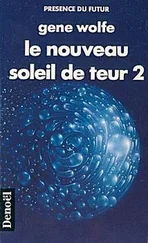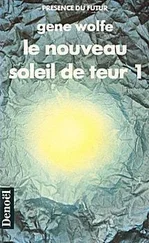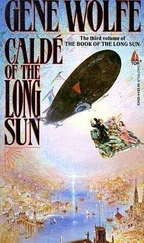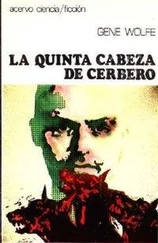Gene Wolfe - There Are Doors
Здесь есть возможность читать онлайн «Gene Wolfe - There Are Doors» весь текст электронной книги совершенно бесплатно (целиком полную версию без сокращений). В некоторых случаях можно слушать аудио, скачать через торрент в формате fb2 и присутствует краткое содержание. Жанр: Фантастика и фэнтези, на английском языке. Описание произведения, (предисловие) а так же отзывы посетителей доступны на портале библиотеки ЛибКат.
- Название:There Are Doors
- Автор:
- Жанр:
- Год:неизвестен
- ISBN:нет данных
- Рейтинг книги:4 / 5. Голосов: 1
-
Избранное:Добавить в избранное
- Отзывы:
-
Ваша оценка:
- 80
- 1
- 2
- 3
- 4
- 5
There Are Doors: краткое содержание, описание и аннотация
Предлагаем к чтению аннотацию, описание, краткое содержание или предисловие (зависит от того, что написал сам автор книги «There Are Doors»). Если вы не нашли необходимую информацию о книге — напишите в комментариях, мы постараемся отыскать её.
There Are Doors — читать онлайн бесплатно полную книгу (весь текст) целиком
Ниже представлен текст книги, разбитый по страницам. Система сохранения места последней прочитанной страницы, позволяет с удобством читать онлайн бесплатно книгу «There Are Doors», без необходимости каждый раз заново искать на чём Вы остановились. Поставьте закладку, и сможете в любой момент перейти на страницу, на которой закончили чтение.
Интервал:
Закладка:
“I don’t either. One more question. What’s a Visitor?”
Her lips tightened. “And where did you hear about that?”
“Does it matter? I want to know what one is, because I think I may be one myself.”
Fanny nosed her little car to the curb. “It’ll have to wait until we get inside,” she said. “Here we are.”
The Room
“Not what you expected, huh?”
It was not. Fanny’s room was small and shabby, no bigger than ten by twelve. Electrical wiring had been strung across the ceiling, and lingerie (a black brassiere and two pairs of panties, one peach, one pink) dangled from it. He said, “Even for a waitress …”
“This is a little extreme? Is that what you think? Rest easy; the department didn’t rent this place for me to go with the job. We aren’t that thorough, and usually we don’t have to be. This is where I live.”
As though to prove it, she sat down on the bed. “If it had gone on longer, I might have picked up some extra money in tips when the weather got a little better. Well, it’s over with now. Tomorrow I’ll tell Blanche about you and get my new assignment. Sit down.”
There was only one chair, a wingback upholstered in faded chintz. He sat, feeling the chair was too small for him, that it had been scaled for a child, that it had once been part of the furnishings of a doll’s house—furnishings dispersed long ago, scattered through smoldering dumps, through Salvation Army stores until only this chair and the doll remained.
“You were going to ask me about Visitors,” she said. “You even said you thought you might be one yourself. Why is that?”
“Because I don’t seem to fit in here.” He paused, laboring to box his feelings in words; and at last he muttered, “I never really know what’s going on.”
Fanny put her fingertips together, reminding him suddenly of the buck-toothed woman in the Downtown Mental Health Center. “Just what is it you don’t understand? I’ll explain if I can.” She rummaged in her purse, took out a battered pack of Chamois and extended it to him. “Smoke?”
“No,” he told her, “and that’s one of them. Hardly anybody smokes any more, except maybe dope. But here almost everybody seems to smoke. Even Mr. Sheng, he smoked a pipe. Klamm smoked a cigar right in the theater. And once when I tried to call my apartment, I got Klamm. I was hoping that Lara would answer, and now I think maybe she was standing there beside him, like she was that night.”
“You know Laura Nomos?”
He shook his head. “Lara Morgan—she used to live with me. I’m looking for her.” He paused to savor the idea. “That’s why I’m here.” Just saying it made him feel stronger.
“You think Laura Nomos and this Lara Morgan are the same person?”
“I don’t know. They look the same—not really the same but like they might be. Maybe this won’t make sense to you, but we used to have a supervisor, Mr. Kolecke, in the department where I worked. He wasn’t friendly like some of them are, and he wasn’t always fair; sometimes he’d crack down on people pretty hard for something that wasn’t their fault at all. But I think probably he got more out of the department than anybody else ever did.
“One day I saw him on the street, and he had a boy and a little girl with him. He looked so different I wasn’t sure it was really him. I followed them a couple of blocks trying to make up my mind, and they went into the Art Museum. I went in too after a while, and he was explaining the pictures to them. Not just what a windmill was and so on, but who the artists had been and where they’d lived, and why they said they painted the way they did.”
Fanny nodded encouragingly.
“Finally I just walked up to him and said, ‘Mr. Kolecke?’ You know the way you do. He looked surprised, then he called me by my first name. We shook hands, and he introduced me to the kids. It seemed funny I hadn’t recognized him right away. But after I thought for a while I saw he hadn’t recognized me either until I said something. I hadn’t felt different just because I was out of the store, wearing different clothes. But I’d looked different to Mr. Kolecke—so different he hadn’t known me until he heard my voice, and I think maybe that’s the way Lara is for me.”
Fanny asked, “Does your hand hurt?” He looked surprised, and she added, “You’ve been holding your wrist with your other hand.”
“Yes, a little bit. Dr. Applewood bandaged it for me this morning. I burned it in the fire last night.”
Fanny leaned forward to look. “Your bandage is wet. You probably got snow on it, and it melted in the car. You’ve cut your finger too. Let me see those, and I’ll give you some dry gauze and some iodine.”
He extended his hands. “What are Visitors? You said you’d tell me about them, but you haven’t told me anything yet.”
“This may hurt a little.”
She tore the old tape away, and it did. With the bandage off, he could trace the angry outline of the burn through its smear of yellowish cream.
“Visitors are people who seem just to appear.” Fanny went to the wooden cabinet over the little sink in the corner and got out a blue cardboard box of surgical gauze. “There’s a place—or anyway, this is how it looks—that’s a lot like our world, but not quite the same. Or maybe there are several places like that. Anyway, sometimes people leak through. Do you like to go to the zoo?”
He said, “Not in weather like this.”
“I do, and in some sections they’ve got rows of cages side-by-side, just separated by wire. You know, I’m getting pretty far from what the manual says about this. Wait a minute, I’ll read it to you.”
She pulled a booklet bound in scuffed orange paper from a shelf over the table and thumbed through its pages. “‘Visitors: Disoriented persons without verifiable history. Visitors often proffer detailed accounts of supposed homes and past lives, but interrogation soon shows these to be fictitious. Visitors are without the rights of citizenship, and are frequently dangerous. Dangerous visitors are to be destroyed.’” She interrupted her reading to say, “That’s North, or at least that’s what we think now. ‘Harmless visitors are to be put under arrest and brought before a superior or federal district court, which will arrange for institutional custody.’” Her voice hardened. “That’s you, if you’re really a visitor.”
He said, “I’m not. I was only putting you on.”
“That’s what I thought. Do you still want to see Klamm?”
“I don’t know. You know more than I do about all this. What do you think?”
“I don’t know either,” Fanny admitted; she shut the orange booklet and replaced it on the shelf. “Whatever else he may be—and some people hate him—Klamm’s no fool. He could probably help you if he wanted to. I’d like to sleep on it.”
He nodded. “All right.”
“Just like that? Wouldn’t you like me to drive you to the station?”
It was said lightly, but he felt there would be trouble if he agreed. He shook his head instead. “I’m tired and there’s a lot more I should know—things you can tell me if you will.”
“Not about visitors, I hope, since you’re not one.”
“No, not about visitors—although I’m still interested in that, particularly in where they come from. About Klamm. Is this where he lives? This city?”
“Sure, this is the capital. He has to be here for meetings with the President. Naturally he travels a lot, because of his position.”
“He has a house or an apartment here?”
“A house, I think,” Fanny said. “At least he used to. I saw a picture of him in the paper one time, taken out on his lawn. He grows roses, that’s his hobby. I suppose that’s why he kept the house when he and his wife split.”
Читать дальшеИнтервал:
Закладка:
Похожие книги на «There Are Doors»
Представляем Вашему вниманию похожие книги на «There Are Doors» списком для выбора. Мы отобрали схожую по названию и смыслу литературу в надежде предоставить читателям больше вариантов отыскать новые, интересные, ещё непрочитанные произведения.
Обсуждение, отзывы о книге «There Are Doors» и просто собственные мнения читателей. Оставьте ваши комментарии, напишите, что Вы думаете о произведении, его смысле или главных героях. Укажите что конкретно понравилось, а что нет, и почему Вы так считаете.










